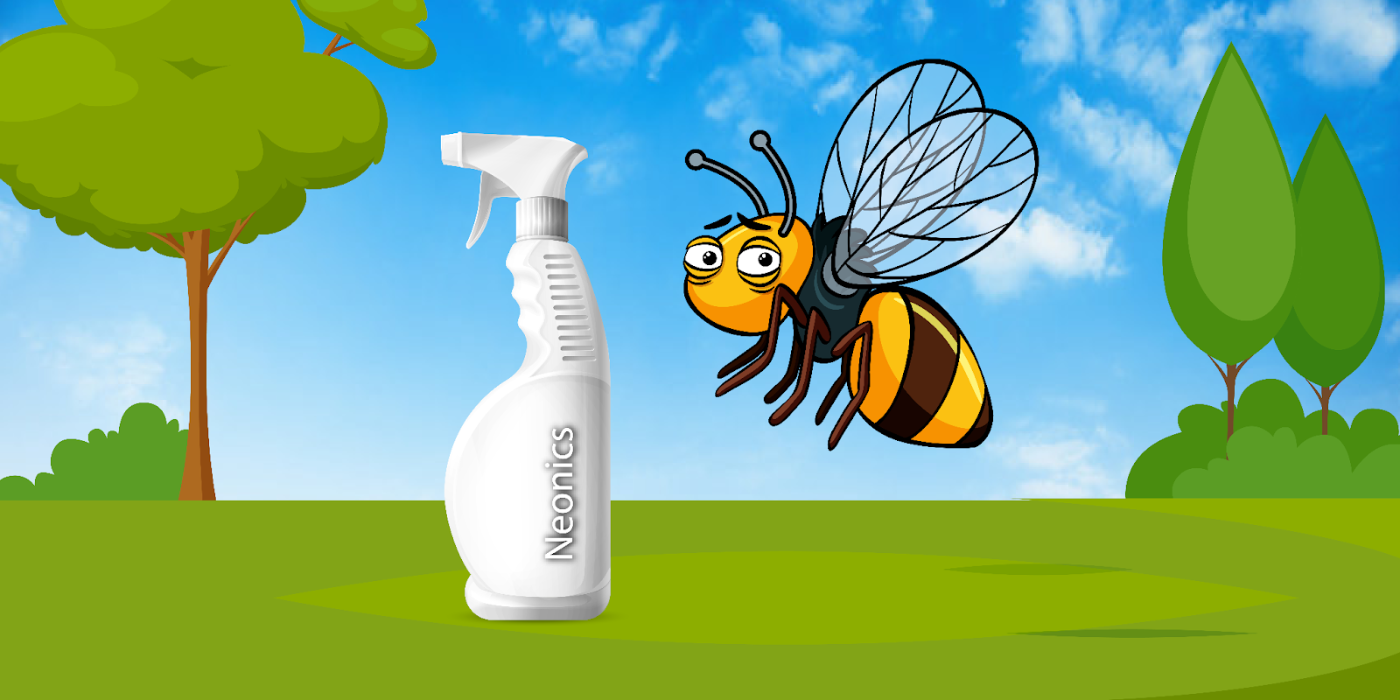
The Buzz About Neonics
Neonicotinoids, commonly referred to as neonics, have long been employed in the agricultural and horticultural sectors to safeguard crops against pests. While effective in pest control, concerns have emerged regarding their potential detrimental impact on honeybees and other essential pollinators. This blog aims to delve into the issue, highlighting the importance of pollinator conservation and exploring ways to address the potential risks associated with neonics.
The Potential Hazards of Neonics on Honeybees
Research suggests that neonicotinoid exposure may have adverse effects on the health of honeybees. Bees can encounter these pesticides through direct contact or by consuming nectar and pollen contaminated with neonics. The consequences of such exposure are significant and multifaceted.
Firstly, neonics can impair honeybees' foraging abilities and navigation skills, disrupting their capacity to locate and return to their hives. This disruption has the potential to impact the overall productivity and survival of honeybee colonies.
Additionally, studies indicate that neonics weaken honeybees' immune systems, rendering them more vulnerable to diseases and parasites. Given that a robust immune system is crucial for individual bees and the colony as a whole, the implications of compromised immunity are far-reaching.
Expanding Concerns to Other Pollinators
While the focus has primarily been on honeybees, other pollinators, including bumblebees, butterflies, and native solitary bees, also face similar risks when exposed to neonicotinoids. Recognizing the broader impact on ecosystems and biodiversity is essential for comprehensive pollinator conservation.
Protecting Our Pollinators
Raising Awareness: Educating others about the potential dangers of neonicotinoids is paramount. By informing friends, family, and the community about the significance of pollinators and the need for bee-friendly practices, we can catalyze positive change.
Supporting Organic and Bee-Friendly Farming: Opting for organic produce whenever possible encourages farmers who prioritize sustainable practices with minimal pesticide usage. Seek out labels or certifications that indicate bee-friendly farming methods to support these initiatives.
Planting Pollinator-Friendly Gardens: Transforming our own backyards into havens for pollinators can make a substantial difference. By cultivating a variety of native flowers and ensuring a pesticide-free environment, we can attract bees, butterflies, and other beneficial insects.
Advocating for Regulation: Staying informed about pesticide regulations in our respective regions is vital. Engaging with local authorities, policymakers, and organizations dedicated to pollinator protection helps promote the adoption of policies that encourage responsible pesticide use and support conservation efforts.
Supporting Research and Monitoring: Scientific research plays a pivotal role in understanding the effects of neonicotinoids on pollinators. By contributing to organizations and initiatives focused on studying and monitoring bee populations, we can actively advocate for their protection.
Neonicotinoids have sparked widespread concerns due to their potential impact on pollinators, particularly honeybees. As guardians of our food supply and contributors to ecosystem health, pollinators deserve our utmost attention and protection. By raising awareness, supporting bee-friendly garden practices, creating pollinator-friendly habitats, advocating for regulations, and backing research efforts, we can collectively safeguard these vital creatures. Together, let us prioritize pollinator conservation and ensure a sustainable future for our planet.



Leave a comment